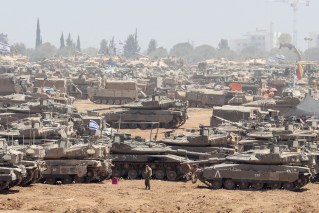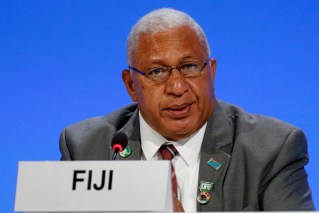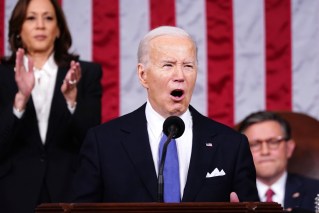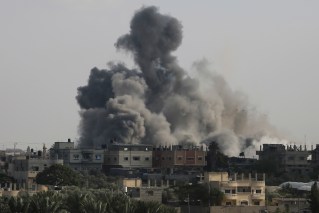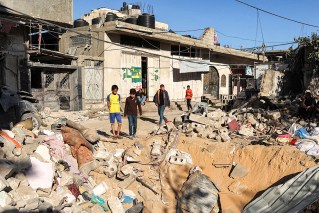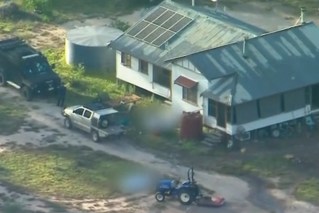Iran intelligence deal ‘complete and utter madness’

An information sharing deal between Australia and Iran would be “complete and utter madness”, said Tasmanian MP Andrew Wilkie, who resigned from the intelligence services over the 2003 Iraq War.
“They’ll (Iran) feed us bucketloads of crap, which they’ll call intelligence, which we’ll think is intelligence, but will simply be misinformation,” he said.
On Monday Australia announced it was going to engage in a deal to share information with Iran about Australians in Iraq and Syria, where Australian intelligence is patchy.
• How to counter Islamic State’s propaganda
• Sharky Jama an unlikely ISIL recruit
• How to counter Islamic State’s propaganda
Mr Wilkie, who quit as a senior analyst at the Office of National Assessments in protest as he said the information used as a justification for the Iraq War was exaggerated, said the regional power would use its intelligence material to advance its regional interests.
“You don’t use the Iranians’ intelligence material, you don’t use the Israeli intelligence material,” he said, as the information from either country was biased to their own regional interests.
“I saw first hand the crap that was coming out of Iran, and it was worse than useless because it was misleading.”
“What this will result in is the Iranians better able to target their opponents.”
He said Iran, which engages in proxy wars with Saudi Arabia, extracts information by torture, which experiences such as the scandals of Abu Ghraib have shown can be misleading.
Foreign Minister Julie Bishop said the information gathered would be used focussed on the estimated 150 Australians fighting with Islamic State.
It has been difficult to confirm the status of those Australians, notably at times like when pictures of Craigieburn teenager Jake Bilardi showed him in a bomb-laden four wheel drive allegedly on a suicide mission in Anbar Province, Iraq.
Iran is concurrently sealing a deal with the United States to develop its nuclear power industry, which Israel suspects is cover for a push to develop nuclear weapons.
The deal was seen as a way for Iran to work its way back into relevance internationally after sanctions on the country have crippled its economy, and its fall into a pariah state under president Mahmoud Ahmadinejad.
Monash University Professor Greg Barton, who works with the Global Terrorism Research Centre, said “Iran wants sanctions to end because it really is damaging them.”
“I think the big thing that Iran is looking for is re-admission into the community of nations. They would really like to be treated like a normal country,” he said.
He said Iran had people “on the ground” in Syria and Iraq, had connections to the Syrian Regime of Bashar al-Assad, and would be able to provide information on people’s movements, their presence in the area and in confirming people’s deaths.
“You would have to verify (the information), and that’s hard,” he said. “It’s got to be vetted in certain circumstances, but it’s still better to have it than have nothing.”
“If Iran is moving in the right direction then it makes sense to encourage them.”
Opposition Leader Bill Shorten hedged his bets on the deal, reserving his judgment for when he has more information.
“We will be pragmatic and we won’t be naive that if there is a beneficial relationship in one part of our relationship with Iran, that doesn’t automatically mean that everything else has changed,” he told the The Australian.

